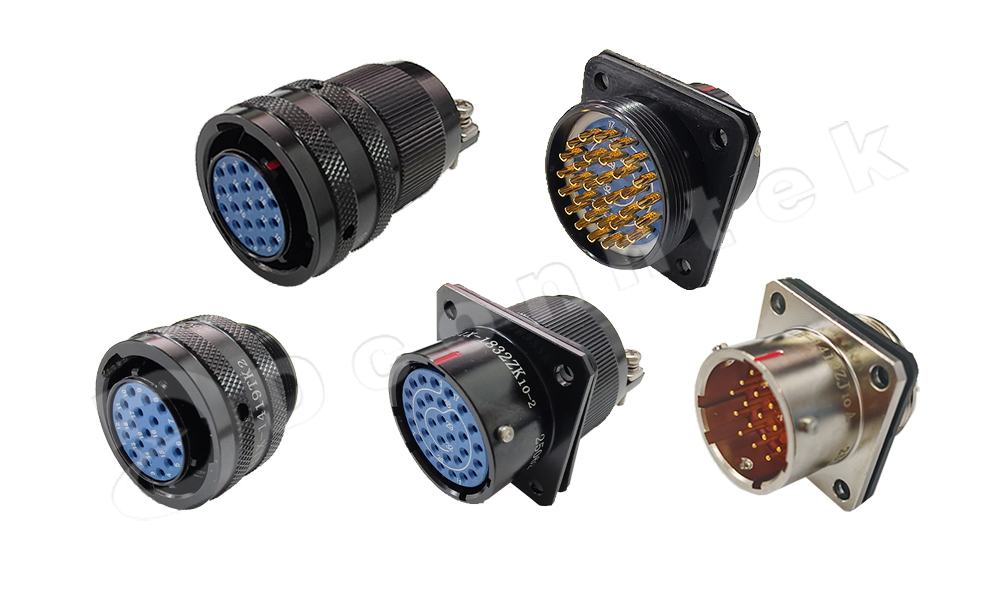
As a classic model of environment-resistant small circular electrical connectors in China, the Y11 series occupies an important position in the military and high-end industrial fields due to its excellent environmental adaptability, reliable electrical performance, and flexible installation methods. This article will comprehensively analyze the technical characteristics and market value of this connector series from dimensions such as standard system, structural design, technical parameters, application scenarios, and development trends.
I. Standard System and Product Positioning
The core technical specifications of the Y11 series circular electrical connectors are derived from GJB101A-1997 "General Specification for Environment-Resistant Quick-Disconnect Small Circular Electrical Connectors". This military standard defines its inherent high-reliability genes. Compared with the U.S. military standard MIL-C-26482 Series II, the Y11 series achieves partial compatibility in terms of overall dimensions and mating interfaces, while featuring distinct localized characteristics in material systems and environmental adaptability indicators:
·Compatibility Design: Mating dimensions and mounting hole dimensions strictly comply with GJB101A-97, enabling interconnection and interchangeability with domestic and foreign products that meet the same standard.
·Material Innovation: Special housing materials such as iron-nickel alloy (Type H) and stainless steel (Type D) have been developed to meet the needs of different corrosive environments.
·Cost Optimization: While maintaining core performance, it achieves a balance between cost and performance through graded housing materials (aluminum alloy, copper alloy, stainless steel).
In terms of product positioning, the Y11 series fills the market gap between high-end military connectors and ordinary industrial connectors. It not only meets the reliability requirements of harsh scenarios such as weapon systems and aerospace but also lowers the application threshold for high-end civilian fields through modular design.
II. Structural Design and Core Characteristics
The Y11 series adopts a bayonet-type quick-connect structure, combined with multiple sealing and installation solutions, forming a flexible and versatile product form. The core highlights of its structural design are reflected in the following aspects:
1. Diverse Housing and Protection Design
This series offers 9 housing sizes and 12 contact arrangement patterns, with housing materials classified into five categories based on protection levels:
·Aluminum Alloy (Type X/P): Mainstream choice. Type X undergoes black anodization (non-shielded), while Type P undergoes electroless nickel plating (shielded).
·Iron-Nickel Alloy (Type H): Suitable for magnetic environments, with nickel plating treatment.
·Copper Alloy (Type S): High electrical conductivity, with nickel plating treatment, and salt spray resistance up to 96 hours.
·Stainless Steel (Type D): Dedicated for extreme corrosive environments, with polishing treatment.
2. Sealing and Installation Solutions
The sealing technology of the Y11 series meets military-grade standards, and the socket adopts two sealing forms:
·Potting Sealing: Protection level up to 0.2MPa, suitable for general humid and dusty environments.
·Glass Sealing: Leakage rate ≤ 1×10⁻⁵Pa·L/s, suitable for high-vacuum and high-pressure scenarios.
Three installation methods are available, covering most application scenarios:
·Flange Mounting: Suitable for panel installation, with excellent anti-vibration performance.
·Nut Fixing: Enables quick assembly, suitable for lightweight equipment.
·Through-Wall Mounting: Isolates different environmental areas while maintaining overall sealing.
3. Contact System
Contacts adopt a copper alloy gold-plating process (iron-nickel alloy gold-plating for Type H) to ensure low contact resistance and long service life:
·Pin diameters are available in two specifications: 1mm and 1.5mm.
·Corresponding rated currents are 5A and 10A.
·Contact resistance ≤ 15mΩ (for iron alloy) and ≤ 5mΩ (for copper alloy).
·Mechanical life: 500 cycles (250 cycles for Type P).
4. Shielding Design
For electromagnetic-sensitive environments, the Y11 series provides a comprehensive shielding solution:
·Electrical continuity between shielded housings ≤ 0.005Ω.
·Attenuation reaches 45dB at 800MHz, effectively suppressing electromagnetic interference.
·Optional shielded heat-shrinkable sleeves or shielded crimping plates for tail accessories, enabling full-link shielding.
III. Analysis of Key Technical Parameters
The technical parameters of the Y11 series fully reflect its design concept of withstanding extreme environments. The core indicators are as follows:
1. Environmental Performance
|
Indicator Item |
Parameter Range |
Description |
|
Operating Temperature |
-55°C ~ +125°C |
Covers the temperature range of most harsh environments |
|
Relative Humidity |
90%~95% (at 40±2°C) |
Ensures stable operation in hot and humid environments |
|
Operating Air Pressure |
4.39kPa ~ 101.33kPa |
Adapts to high-altitude and low-pressure environments |
|
Salt Spray Resistance |
48h~96h |
Classified by housing material, with a maximum resistance of 96 hours |
|
Rain Protection |
Rainfall intensity of 5mm/min |
Suitable for outdoor unshielded environments |
2. Mechanical Performance
·Vibration Characteristics: Sinusoidal vibration at 10Hz~2000Hz with an acceleration of 196m/s²; random vibration with a power spectral density of 40m²/s⁴Hz.
·Shock Resistance: Withstands an acceleration of 980m/s², equivalent to a 100G shock load.
·Mating Life: 500 complete mating cycles, with contact resistance variation ≤ 30%.
3. Electrical Performance
|
Test Condition |
Insulation Resistance |
Withstand Voltage |
|
Standard Atmosphere |
≥3000MΩ |
AC 1500Vrms |